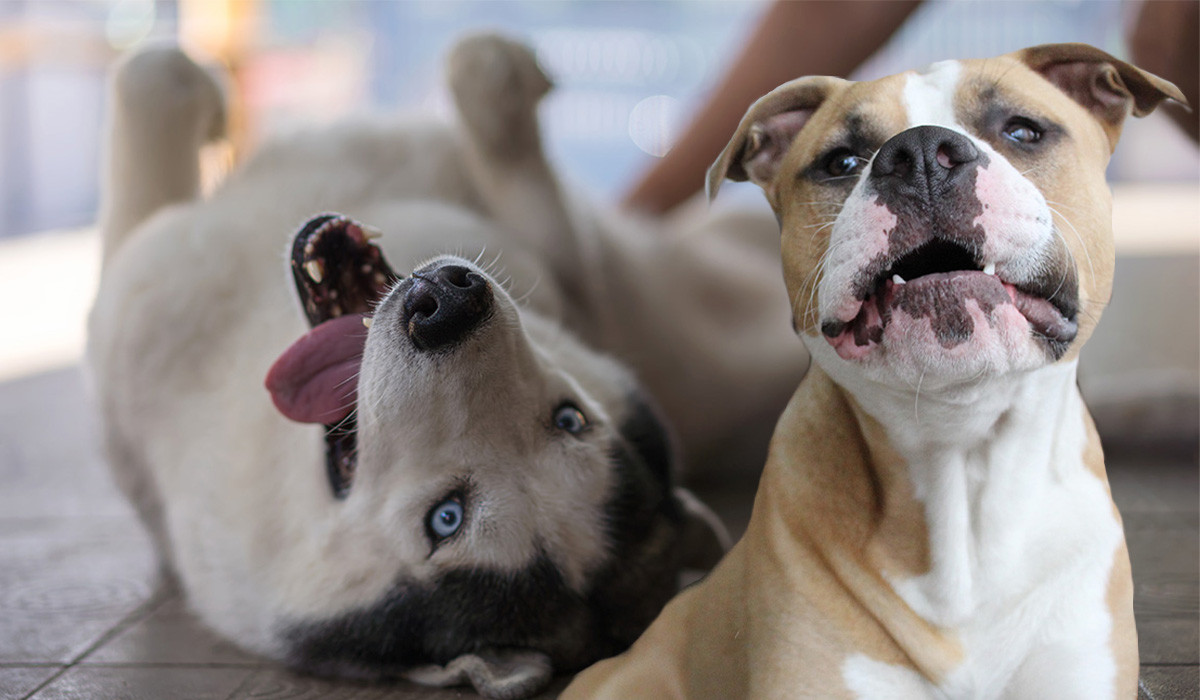Will Atherton, an expert dog trainer with more than 900,000 followers on TikTok, shares dog training advice and helps his audience choose suitable breeds based on their lifestyle and the breed's temperament. In a video with over 9.3 million views, Will reveals the "worst dog breeds for families", highlighting potential dangers to young children.
He started the video by saying: "My job is helping fix dogs when they've gone terribly wrong, so which are the breeds I see that happen most often to, that you as a family member might want to steer well clear of?"
Will highlighted the Caucasian Shepherd as a problematic breed, but noted that "any of the giant livestock guardian breeds" can be challenging.
He elaborated: "Yes, they can be protective of the family, but they're much better suited to live outside on a farm. And if you try and bring them into the home, they might not have the patience or the ability to get away from children that they find frustrating." Will also mentioned that such situations often result in "bites on children".
Despite the Belgian Malinois' impressive obedience and training capabilities, Will believes the breed is not suitable for families with children. He explained: "They bite children, they hurt children, they have no off switch and they want to be go, go, go all the time."
Turning his attention to the Dogo Argentino, Will expressed his fondness for mastiff breeds but pointed out that he hears about the Dogo Argentino "going wrong with children" more than any other.
The Dogo Argentino is among the five dog breeds outlawed in the UK, alongside the Pit Bull Terrier, Japanese Tosa, Fila Brasileiro, and most recently, the XL Bully.
It's essential to remember that every dog is an individual and generalizations about breeds can be misleading. However, Will Atherton's insights provide a valuable starting point for families considering adopting a dog, emphasizing the importance of thorough research and responsible breeding practices. The potential risks associated with certain breeds should be carefully considered, especially when children are involved. Ultimately, the well-being of both children and dogs depends on responsible pet ownership, informed decisions, and an understanding of the unique needs of each individual animal.
Dog Breeds: A Closer Look
Caucasian Shepherd
Caucasian Shepherds are known for their large size, powerful physique, and guarding instincts. While they can be loyal and protective of their families, their immense size and strong guarding drive can make them a challenge to manage in a family home, especially with young children. Their protective nature may lead to aggressive behavior towards strangers or perceived threats, potentially posing risks to children. It's crucial to understand the specific needs of a Caucasian Shepherd and ensure proper training and socialization from a young age.
Belgian Malinois
Belgian Malinois are highly intelligent, energetic, and driven working dogs, often employed in police and military work due to their exceptional obedience and training abilities. However, their intense energy levels and high prey drive can make them unsuitable for families with young children. Their intense energy requires constant physical and mental stimulation, which many families struggle to provide. Without proper training and socialization, their inherent drive could lead to unpredictable behavior, posing risks to children.
Dogo Argentino
Dogo Argentinos are large, powerful dogs originally bred for hunting large game. Their strong prey drive and powerful physique make them a challenging breed to manage, especially in a family setting. They require a high level of training, socialization, and consistent exercise, which can be demanding for many families. Their strong prey drive and instinct to chase can pose risks to children, especially if they haven't been properly socialized and trained.
Finding the Right Breed: A Family Affair
Choosing the right breed for a family is a significant decision that should not be taken lightly. It's vital to do thorough research and consider factors such as the breed's temperament, energy levels, training requirements, and compatibility with a family's lifestyle. Consulting with reputable breeders and experienced dog trainers is strongly recommended. By making informed decisions and taking the time to understand the specific needs of a breed, families can increase the chances of finding a dog that is a safe and loving addition to their home.



















